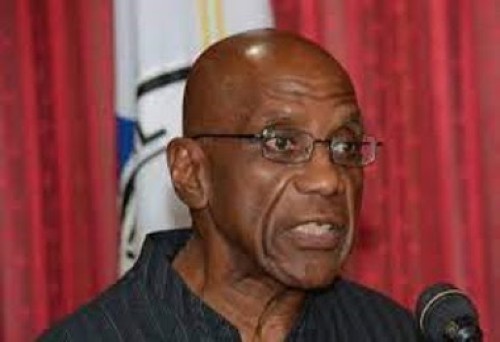BRIDGETOWN, Barbados - Prominent Barbadian economist, Dr. DeLisle Worrell, says Caribbean people are in danger of losing faith in the regional integration movement, CARICOM “simply because we have set goals for the regional organization which can no longer be attained”.
 Dr. DeLisle Worrell (File Photo)Writing in the September issue of his monthly Newsletter, the former governor of the Central Bank of Barbados (CBB), said 30 years since the report of the West Indian Commission, titled “Time for Action,” was published, four essential institutional upgrades for CARICOM had been recommended, but have so far failed to be implemented.
Dr. DeLisle Worrell (File Photo)Writing in the September issue of his monthly Newsletter, the former governor of the Central Bank of Barbados (CBB), said 30 years since the report of the West Indian Commission, titled “Time for Action,” was published, four essential institutional upgrades for CARICOM had been recommended, but have so far failed to be implemented.
He said that among the recommendations was the establishment of a single currency for all of CARICOM, similar to the Euro, to replace the individual currencies in use in the region.
“As we all know, none of these initiatives was implemented, and by now all but the dream of a common currency have been forgotten,” Worrell wrote in his Newsletter under the heading “Beyond the Dream of a Single Market and Currency”.
Worrell, who also served as the executive director of the Caribbean Centre for Money and Finance (CCMF), said that CARICOM will never be a decision-making body and that the regional leaders lack a regional mandate.
“On every issue where decisions of the regional body conflict with national interests, the regional decision will be sacrificed. In practice none of CARICOM’s major decisions has overcome this barrier.
“To continue to set freedom of movement of goods and persons across the region as the goal of the integration movement is to ask the impossible,” he argued.
Worrell said a similar logic applies to the common currency.
He said rather than continue the search for a single Caribbean currency to be used everywhere in the region, “would it not make sense to accept the present reality?”
He recalled at the just concluded Caribbean Festival of Arts (CARIFESTA XV) held in Barbados last month, purchases from vendors across the region were made in United States dollars, “which is the currency in use throughout the region.
“The individual country currencies have no value beyond the borders of the territories where they originate; all payments and exchanges between currencies are settled in US dollars. The cost and limited availability of US dollars are a major impediment to regional trade and cultural services.”
Worrell said that the present reality is that the domestic currencies of Caribbean countries derive their value from the US dollar and that excessively large foreign reserve balances are the norm across the Caribbean, all in the US currency.
“There would be no need for these foreign reserves if there were no domestic currencies that were at risk of devaluation. CARICOM countries would benefit from using these funds for investment in infrastructure and public facilities and using the US dollar for all payments, local, regional and international.
“We are in danger of losing faith in CARICOM simply because we have set goals for the regional organization which can no longer be attained. The regional integration movement might be seen in a much more positive light if instead we would celebrate the fellowship and conversations which the CARICOM network facilitates.
“We should also dispense with the inconvenience of individual currencies that derive their value from the US dollar, which we already use for all regional and international payments,” Worrell added.


